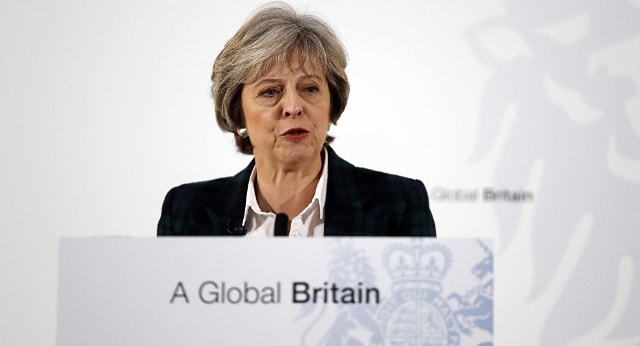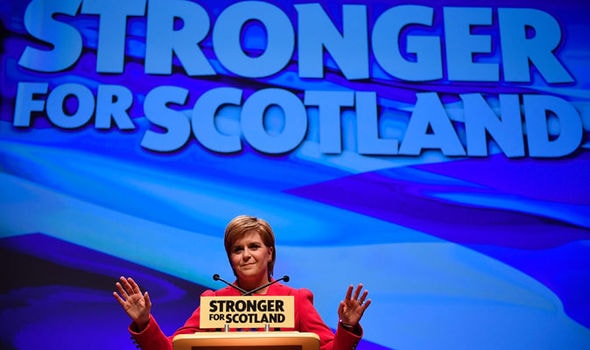Why did the British Prime Minister choose a 'hard Brexit' with the EU?
(Baonghean.vn) - The UK has chosen the “hard Brexit” scenario, which means a decisive breakup with the European Union (EU). What is the reason for this decisiveness? What does the UK gain and lose from this scenario?
Decided to "break up"
The choice of a “hard Brexit” scenario announced by the British Prime Minister is not too surprising compared to her previous statements. However, this is considered the clearest and most official statement of the British government on the Brexit implementation strategy in the context of criticism and speculation about the possibility of Brexit falling into chaos.
According to the 12 points that Mrs. May raised, it is worth noting that the UK will withdraw from the single market, the customs union and the European Court of Justice. As Mrs. Theresa May stated, “the UK wants a new and fair partnership, not a partial membership or association with the EU”. This means that the UK will not seek a status similar to Norway or Switzerland, that is, standing outside but having special cooperation with the EU.
The explanation for the British Prime Minister’s “tough” decision can be viewed from two perspectives. Firstly, internally in the UK, after the Brexit referendum, the “Foggy Country” faced deep divisions among both officials and the people. A large number of people continued to support remaining in the EU, and Scotland even announced that it would hold a referendum to separate from the UK and then join the EU.
 |
| British Prime Minister Theresa May speaks about Brexit strategy on January 17. Photo: AFP |
More worryingly, British politicians fear that the Brexit supporters will be psychologically disturbed and regret their decision in the referendum. In such a context, the British government has no choice but to completely resolve the situation with a definitive statement: Britain will leave and completely stand outside the EU as an independent and equal partner.
The second aspect is external pressure, specifically from the EU. Recently, at important agendas of the bloc, leaders of key member countries such as Germany, France, and Italy have always affirmed their stance of "not letting the UK leave easily, to avoid setting a bad precedent" for other members.
A small country with very close relations with the UK like Denmark also spoke out that “any concession that does not benefit Denmark will not be accepted”. EU countries have set a condition that if the UK wants to continue to access the European single market with tax incentives like a normal member, the UK must accept the freedom of movement of EU citizens, specifically EU citizens must be free to enter the UK.
Of course, this is something that Theresa May’s government is firmly against because “freedom of movement” causes the UK too much of a headache in controlling immigration and is also one of the reasons for today’s Brexit result. So, facing pressure from the EU, of course, the UK does not want to “divorce” with the negotiations and binding conditions, so they have to “break up”.
What does Britain gain and lose?
Not to mention the nature, the strategy that the British Prime Minister has just put forth is considered by businesses and diplomats as a “compass” to plan their “paths”. With a “hard Brexit”, in the future the UK can have full control over the flow of immigrants into the country, including immigrants from other European countries.
On trade, the UK will be “free” to seek the deal it wants with the European Union, not the other way around. That means it will be autonomous in all matters after six decades of being “bound” by a bloc. This separation could bring London new friends, new partners that are more suitable for the development and stability of this country.
However, the “loss” of a hard Brexit is not small. Economically, leaving the European Single Market will bring obvious losses to the UK. 44% of UK exports go to the EU and if blocked by tariff barriers, the economic damage to the UK will be extremely serious.
 |
| Scottish First Minister Sturgeon has warned she will trigger an independence referendum following the government's hard Brexit decision. Photo: Express |
Prime Minister May has said she will “devalue tariffs” to attract businesses and investors if Britain fails to negotiate a positive deal with the EU. This could lead to a “punitive deal” for the UK by the EU.
In addition, the UK's decision to leave the EU customs union will also force the country to renegotiate not only dozens of previous agreements but also to strengthen border controls on the flow of people and goods on international air routes, rail routes and seaports.
What is more worrying is that a “hard Brexit” does not help heal the divisions within the UK but risks “deepening” the conflict. Scottish First Minister Nicola Sturgeon has frankly pointed out that the UK government’s plan to leave the EU would be a tragedy for the UK economy. Therefore, Scotland must have the right to vote for independence.
It seems that the unity of the United Kingdom is under threat if Scotland wants to hold a new referendum on independence. This will be a big challenge for the British Prime Minister's government in the coming time.
The UK’s decision to leave the EU without any binding agreement will be the second “cold water” poured on the EU after the UK referendum in June 2016. Therefore, it is predicted that future negotiations between the UK and the EU will be fraught with difficulties, and that the Brexit negotiations may even reach a deadlock with no way out, and the longer this situation lasts, the more disadvantageous it will be for Theresa May’s government.
Thanh Huyen
| RELATED NEWS |
|---|

